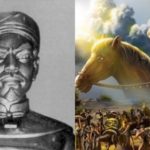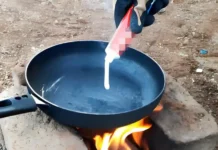The victory of Dien Bien Phu on May 7, 1954 is a momentous event in Vietnam’s history that holds immense significance. This battle’s triumph has had a profound impact on the nation, symbolizing the bravery and resilience of the Vietnamese people. Understanding the historical significance and contemporary relevance of this holiday is essential.
What Year Did the Battle of Dien Bien Phu Occur?
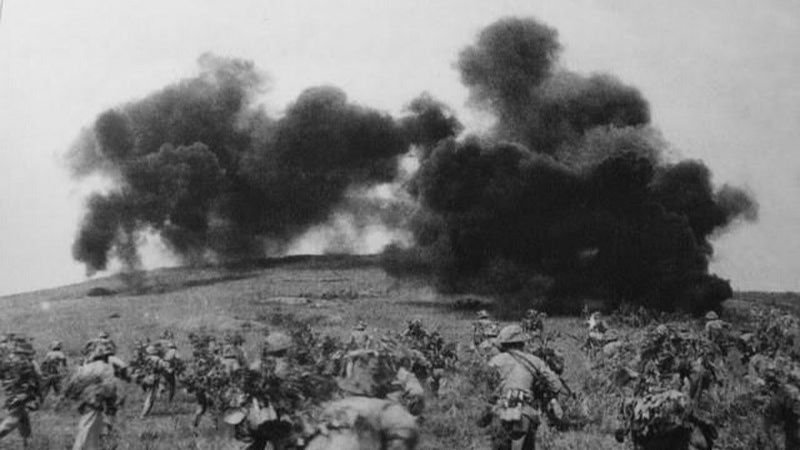
Date of the Battle of Dien Bien Phu
On May 7, 1954, the Vietnamese People’s Army, under the leadership of General Vo Nguyen Giap, achieved a momentous victory by forcing the French forces at Dien Bien Phu to surrender after a valiant resistance lasting two months.
Since then, this historic day has stood as a significant milestone, commemorating the triumph of Dien Bien Phu.
This was also the largest military victory in Vietnam’s Indochina War (1945-1954).
Discover the historical significance of the Battle of Dien Bien Phu
Overview of the Battle of Dien Bien Phu
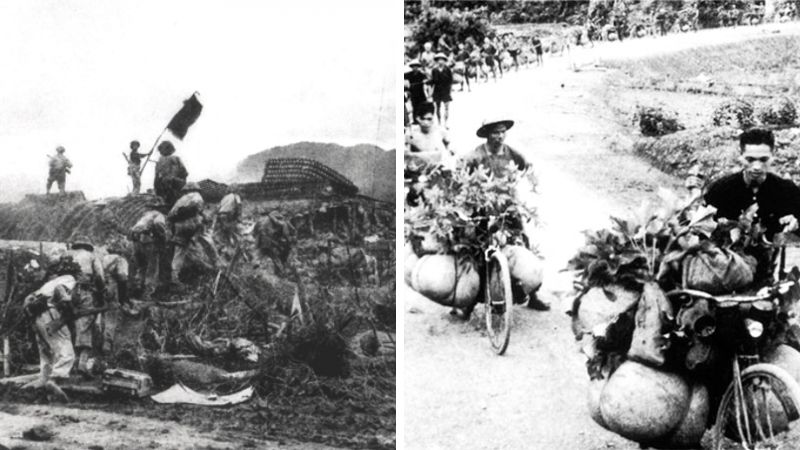 Summary of the Battle of Dien Bien Phu
Summary of the Battle of Dien Bien Phu
The battle endured for a total of 56 consecutive days and nights, encompassing three distinct phases:
-
Phase 1: From March 13 to March 17, 1954, our forces successfully destroyed the Him Lam and Doc Lap strongholds, eliminating over 2,000 enemy soldiers and demolishing 25 enemy planes, bases, and weapon depots. The French artillery commander, overwhelmed by the relentless pressure from our troops and the local populace, tragically took his own life.
- During Phase 2, which took place between March 30 and April 30, 1954, our forces strategically targeted the eastern strongholds in the central area in order to further encircle the enemy. We successfully launched a series of offensives, ultimately gaining control over the Mu?ng Thanh airfield. This successful maneuver effectively restricted the enemy’s ability to resupply their stronghold complex.
- Phase 3: From May 1 to May 7, 1954, our military successfully captured the eastern strongholds and executed a coordinated offensive operation to annihilate the enemy stronghold complex. On May 7, 1954, at 5:30 p.m., we triumphantly seized control of the enemy command post. Faced with this decisive turn of events, General De Castries and the French command and garrison at Dien Bien Phu were compelled to surrender. The flag of our troops, bearing the motto of “determined to fight, determined to win,” proudly flew over the enemy’s command bunker, symbolizing a future free from outside control. On the same night, our forces pressed forward towards the southern area, compelling the enemy to retreat to Upper Laos. By midnight, the entire enemy force had been apprehended as prisoners of war.
This was the most intense and determined phase of the attack, with both sides involved in fierce fighting for 20-30 days at various strongholds, fighting for every inch of land, every traffic intersection. After the second offensive, the central area of Dien Bien Phu was within range of our weapons, and the enemy forces were in a passive position, lacking high concentration.
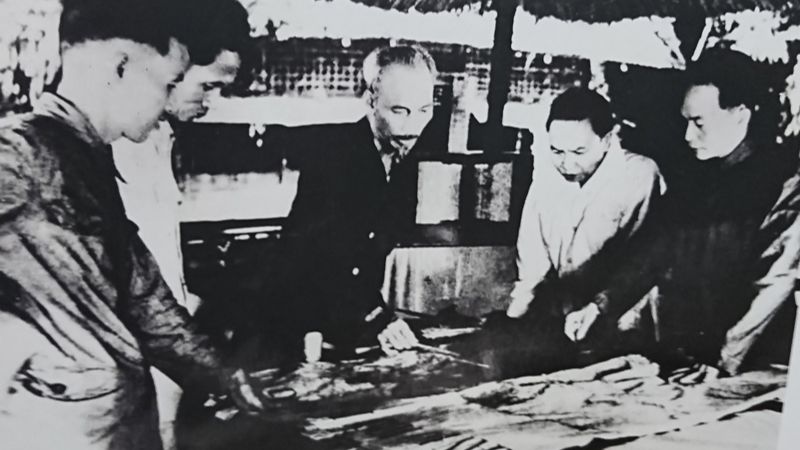
Summary of the Battle of Dien Bien Phu
Outcome of the 1954 Battle of Dien Bien Phu
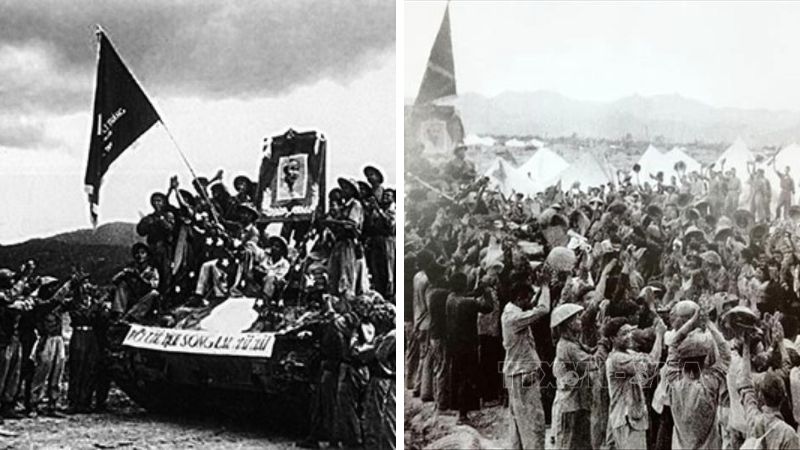
Results of the Battle of Dien Bien Phu
After 56 days and nights of unyielding combat, our troops and people emerged victorious as they successfully dismantled the enemy stronghold complex of Dien Bien Phu. The remarkable efforts carried out with unwavering courage, resourcefulness, and innovative thinking resulted in the elimination and capture of 16,200 enemy soldiers. Additionally, our forces managed to bring down 62 enemy aircraft, seize 64 vehicles, and acquire all enemy weapons, ammunition, and military equipment. This resounding victory stands as a testament to the unwavering dedication and strength of our forces.
Exploring the Impact of the Battle of Dien Bien Phu on History
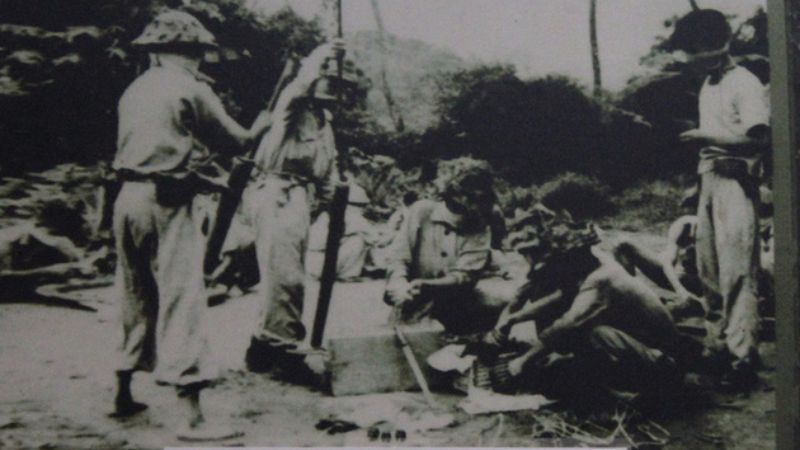 Historical Significance of the Battle of Dien Bien Phu
Historical Significance of the Battle of Dien Bien Phu
The Dien Bien Phu campaign can be regarded as a strategically pivotal and glorious battle that had a profound global impact. This significant battle directly led to the signing of the Geneva Accords, which effectively put an end to the war and facilitated the restoration of peace in the Indochina region.
Additionally, this triumph has not only established the groundwork but also provided the necessary circumstances for our compatriots to persistently achieve significant triumphs in their efforts to safeguard and construct an autonomous homeland in the forthcoming times.
Celebrating the 65th Anniversary of the Battle of Dien Bien Phu with 2 Events
Saluting Our Heroes and Martyrs with Candlelight Ceremony
Paying homage to the graves of martyrs and organizing candle lighting ceremonies at the Martyrs Cemetery is a meaningful tribute to the brave heroes who selflessly fought for the independence and establishment of the democratic republic of Vietnam. It is a solemn expression of deep gratitude for their dedication and sacrifice.
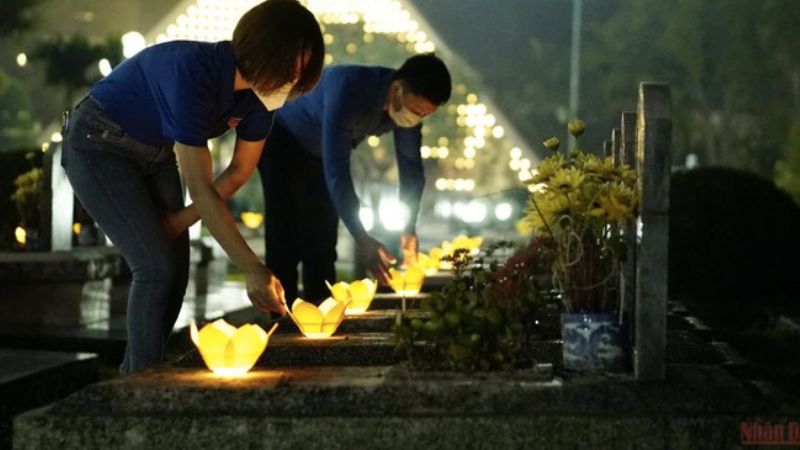
Cultivating Cross-Cultural Connections at Schools and Offices
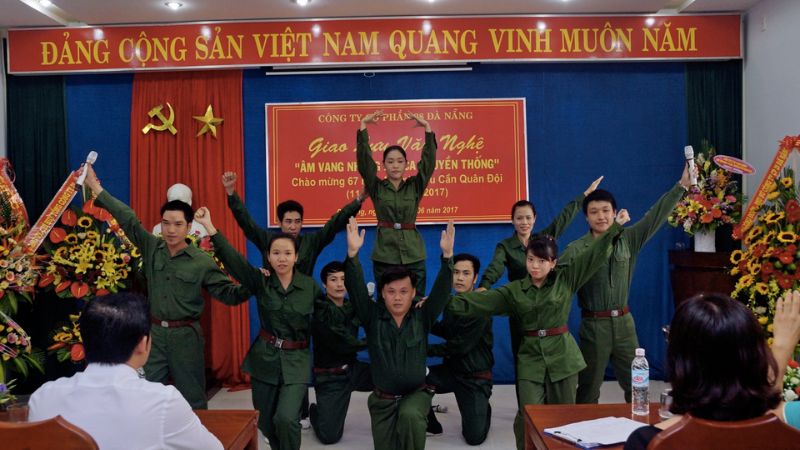
We facilitate cultural exchange activities at schools and offices. We believe these activities have significant historical and cultural value in today’s society.
Every year, on May 7th, schools and offices organize cultural exchange activities, writing contests, storytelling competitions, and history lessons to promote and honor the contributions of our ancestors. These events are dedicated to celebrating our rich cultural heritage and ensuring that their stories and achievements are remembered and appreciated.
Explore These 3 Destinations to Celebrate the Dien Bien Phu Victory
Him Lam Hill
The image below depicts “Him Lam Hill”:
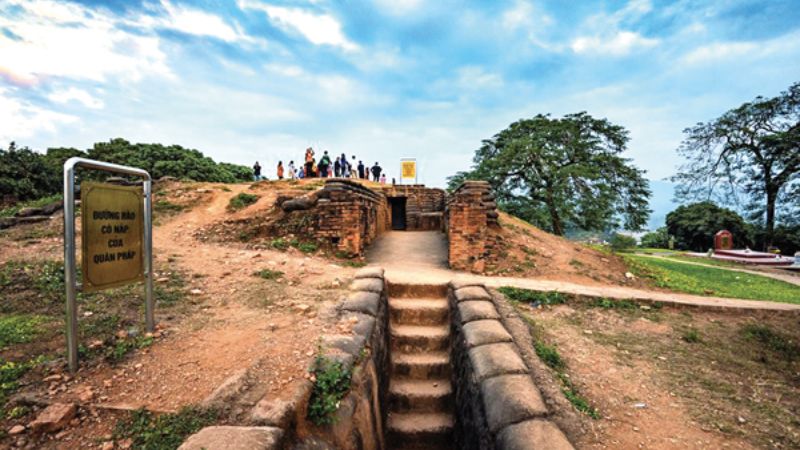
Caption: Him Lam Hill
Quality rating: 4.4/5 (Rated by Google)
Address: Him Lam, Dien Bien Phu City, Dien Bien
Price: Free
Opening hours: Open all day
Phone number: N/A
Facebook: N/A
Advantages: A component site of the Dien Bien Phu historical site.
Disadvantages: Not well-known.
The Him Lam historical site holds significant importance as a national-level historical site in Dien Bien Province. It remains the site of the pivotal opening battle that led to the triumphant Dien Bien Phu Victory in 1954.
Vietnam Celebrates Opening of Dien Bien Phu Victory Museum
Visit the Dien Bien Phu Victory Museum
Quality rating: 4.6/5 (Rated by Google)
Address: Muong Thanh, Dien Bien Phu City, Dien Bien
Price: Around 100,000 VND/1 person
Opening hours: 7:30 AM – 5:30 PM
Phone number: N/A
Facebook: N/A
Advantages: A historical tourist spot with significant historical significance.
Disadvantages: Relatively high ticket prices.
The Dien Bien Phu Victory Museum is a remarkable structure, both in terms of its historical and cultural significance, as well as its architectural and engineering achievements. It stands as the largest and most impressive construction in Dien Bien Province, symbolizing the momentous victory known as the “Glorious on five continents, shaking the globe.”
Answers to Four Questions about the Dien Bien Phu Victory
In 2023, Marking Seventy Years Since The Victory Of Dien Bien Phu
On May 7, 2023, we will commemorate the 69th anniversary of the historic Dien Bien Phu victory, a momentous event that played a significant role in the fight against foreign aggression. This achievement is widely recognized as one of the most notable triumphs in our nation’s history, alongside other important milestones such as Bach Dang, Chi Lang, and Dong Da during the Ho Chi Minh era.
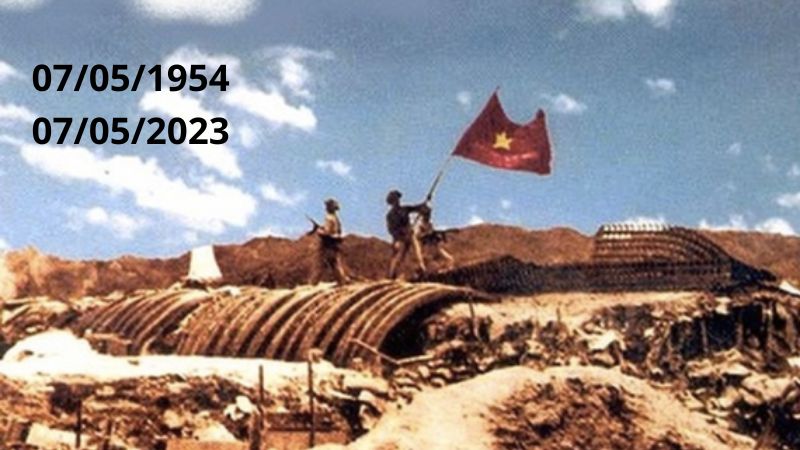 Commemorating the 69th anniversary of the Dien Bien Phu victory
Commemorating the 69th anniversary of the Dien Bien Phu victory
Exploring Artworks Depicting the Victory at Dien Bien Phu
The Panorama Painting: Recreating the Entire Scene of the Dien Bien Phu Campaign
The painting has been created using oil paint and is currently exhibited on the 2nd floor of the Dien Bien Phu Victory Museum, located in Dien Bien Phu City, Dien Bien Province. It holds immense historical significance and conveys a powerful message of peace. Additionally, this artwork serves as a valuable documentation that aids in education and the preservation of revolutionary traditions for generations to come.
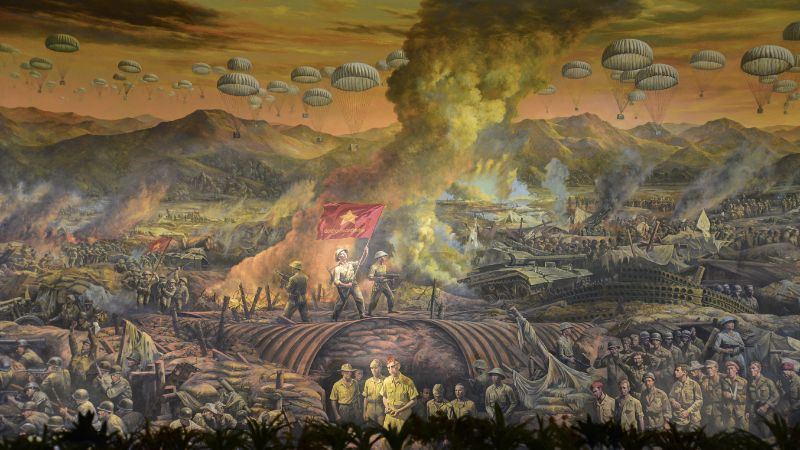
The Panorama painting – recreating the entire scene of the Dien Bien Phu campaign
To Huu is a revered poet who wrote the moving poem “Hailing the Dien Bien Phu Fighters.”
Poet To Huu, a keen observer of the Dien Bien Phu campaign, composed inspiring verses to uplift the morale of our soldiers and the nation. His poem, “Hailing the Dien Bien Phu Fighters,” serves as an anthem to honor their heroic achievements. Crafted in the aftermath of our triumphant victory on May 7, 1954, this masterpiece embodies the indomitable spirit of our troops and people.
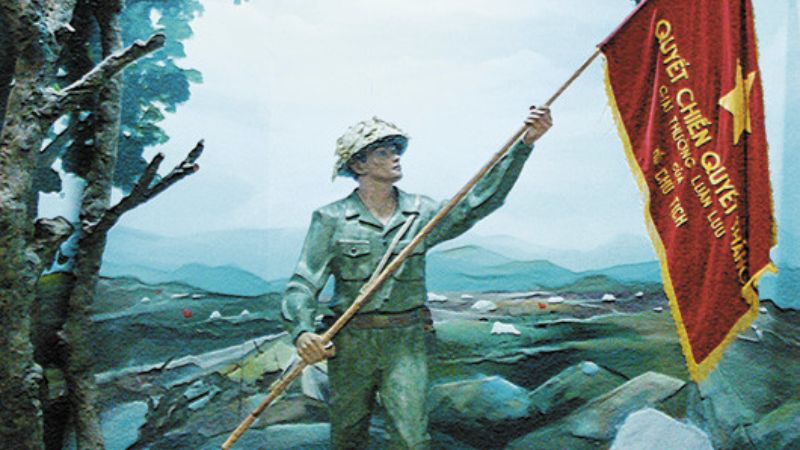 To Huu with the poem “Hailing the Dien Bien Phu Fighters”
To Huu with the poem “Hailing the Dien Bien Phu Fighters”
This article discusses the historical importance of the Dien Bien Phu victory that took place on May 7, 1954. We have provided valuable insights and information on this topic.


























